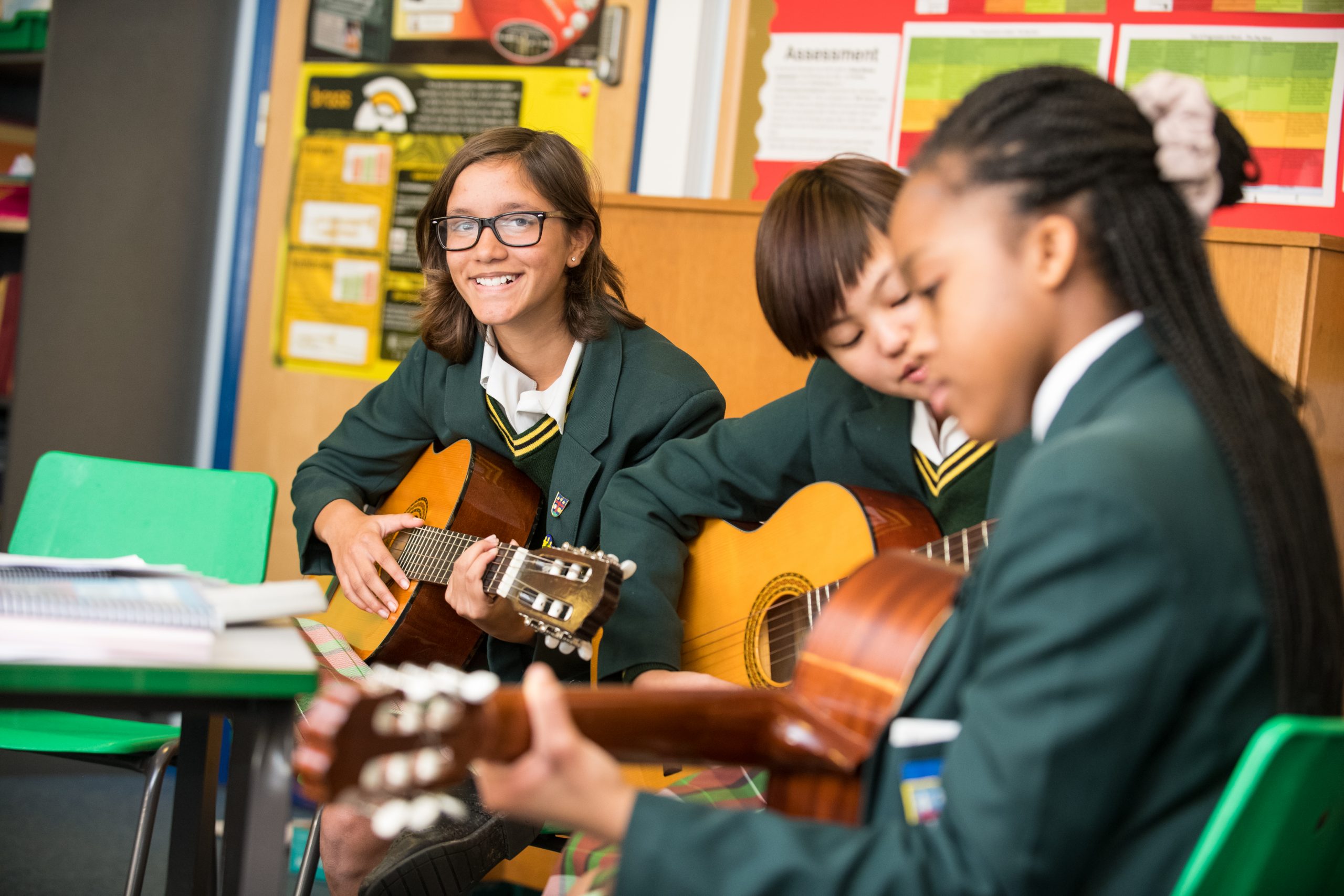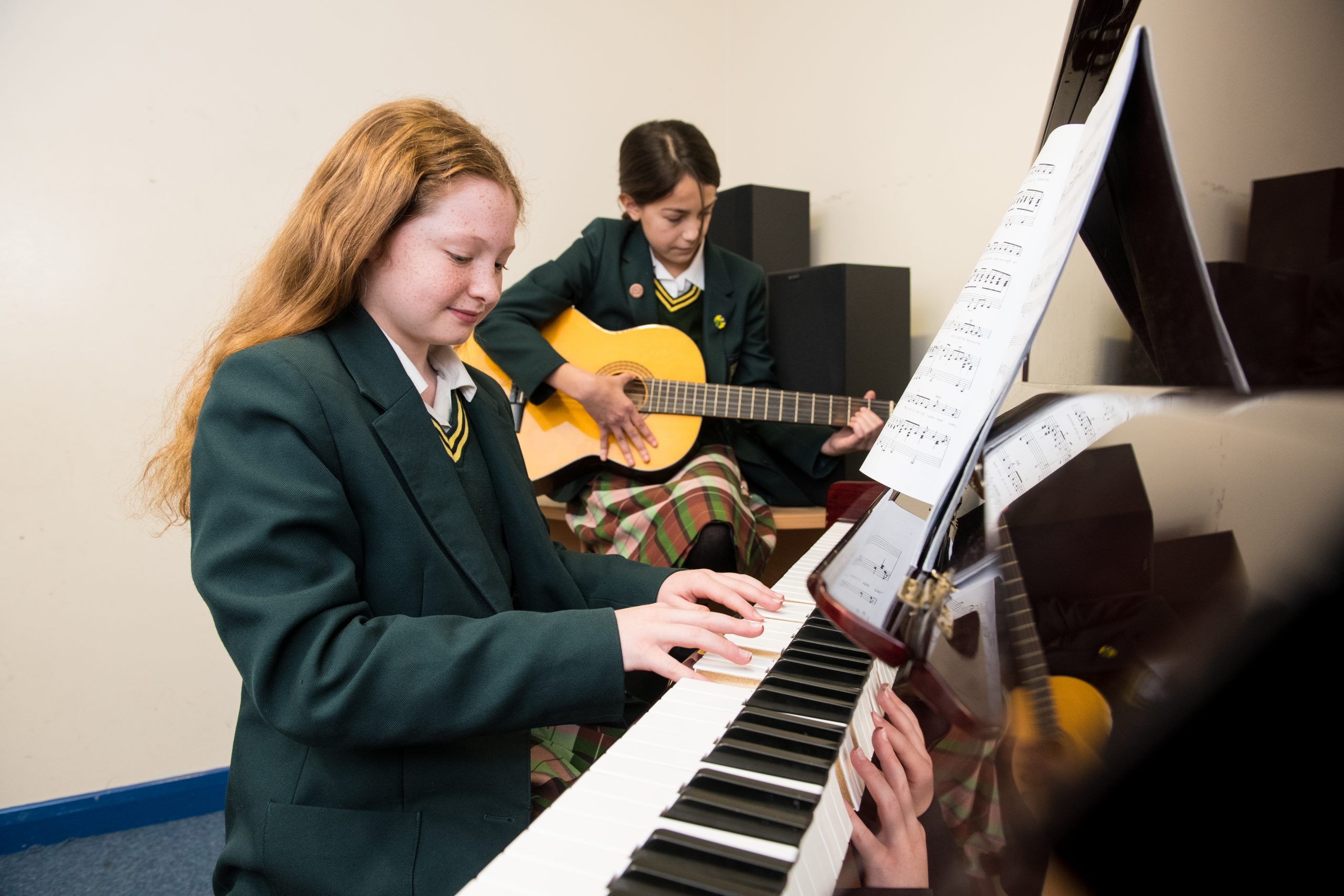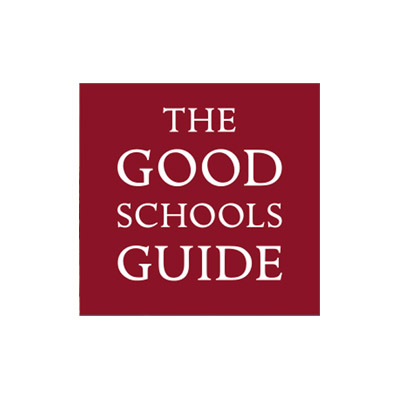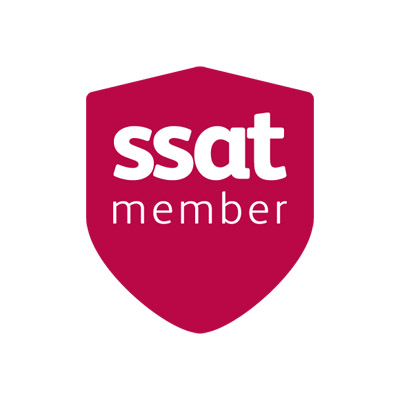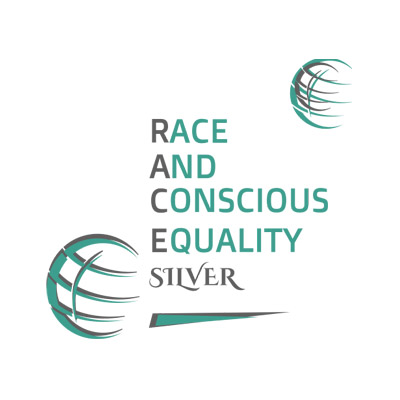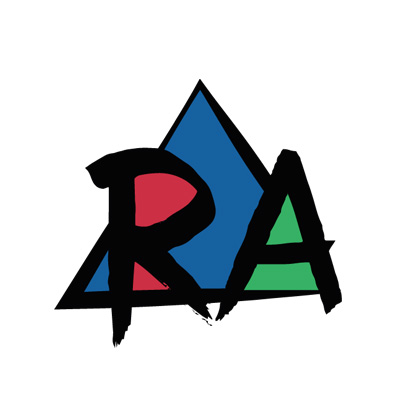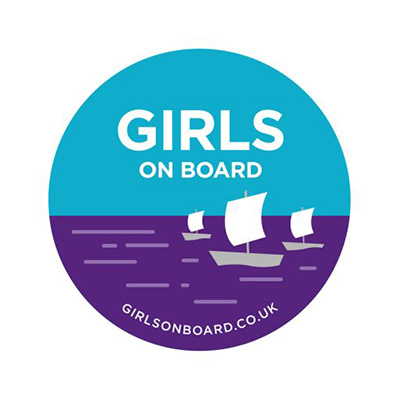Performing Arts
About the Department
Performing Arts is taught by Miss J Hazell (Dance), Mrs A Vickers (Drama), Mrs K Jo (Music), Mr R Williams (Music) and Ms J Tang (Music).
Performing Arts is a vibrant and central part of life at The Holy Cross School. From one student accompanying on the piano at Staff Prayers in the Chapel, to an ensemble playing before Open Evening or the Christmas Shopping Evening to the whole school musical with keen performers, musicians, technicians and stage-hands, to the very lively Rock and Pop Festival or Gym and Dance Display, there are many opportunities for students.
There are specialist facilities for each area with a Dance Studio, a Drama Studio complete with lighting and sound box, and a Music Suite which is well-resourced with keyboards, guitars and percussion instruments, a recording studio, 2 practice rooms and a drum room.
Performing Arts Intent:
Our intent is to provide a varied, exciting and inclusive performing arts curriculum where all students can learn to be creative, confident and skillful performers. This is delivered through a variety of topics containing practical and written elements to enhance the students’ knowledge and understanding of the different skills used in each of the performing arts subject. We would like our students to achieve a sense of awareness for the performing arts world and have a wider understanding of music, dance and drama both practically and theoretically as well as for our students to become a generation of children who are both artistically literate and lovers of performing arts.
Within Dance, the students explore a range of genres, stylistic features and choreographic devices, with the aim to gain confidence, performance skills and develop their dance technique in a safe and stimulating environment. The schemes of work all include areas of social, moral, spiritual and cultural themes to encourage wider knowledge and awareness within students’ learning.
Within Drama, the students develop and explore their confidence and self-esteem through their practical skills when examining the elements of characterisation focusing on vocal and physical techniques. We focus on the social, moral, spiritual and cultural themes within a variety of schemes of work covering a range of knowledge developing key skills and terminology for the subject.
Within Music, the goal is to inspire and engage students to develop a love of music and develop their talent and skills through participation in a wide range of historical periods, genres, styles and traditions, including the works of the great composers and musicians. Through learning music, students increase their self confidence, creativity and a sense of achievement as well as a better understanding of the world around them.
Instrumental Tuition Lessons
At Holy Cross, we run our own music tuition taught by highly experienced teachers alongside the Kingston Music and Arts Service (KMS) for students who would like instrumental or singing lessons. Girls in years 7 to 9 come out of subject lessons on a rotational basis where possible. Girls in year 10 and upwards are given priority to have lessons before school, during breaks, in study periods or after school. Instrumental tuition lessons covered include: Voice, Violin, Flute, Clarinet, Saxophone, Guitar, Piano and Drums.
Peripatetic Music Teachers:
Guitar / Drums – Ms Dylan
Piano – Mr Shin
Piano & Harp – Ms Aspinall
Piano – Ms Oh
Violin – Mr Wang
Voice – Ms Weir
Piano (KMS) – Ms Khoryshko
Key Stage 3 Performing Arts
All students study Dance, Drama and Music in KS3. There are opportunities for extra-curricular activities in all three subjects, including a whole school musical production every two years which is performed in a professional theatre. The impact of Performing Arts is that all students transition into KS4 having had a rich, cultural and practical experience developing their confidence, key skills and knowledge across all the three Performing Arts subjects.
Key Stage 3 Dance
Dance is a physical, stimulating and skills based subject. Students will be introduced to the key features of dance, a range of choreographic principles and elements that build towards creating detailed and effectively structured dance performances.
They will have the opportunity to study a variety of different dance styles, professional dance works, learn repertoire and produce their own choreography in a stimulating way. Dance not only develops physical skills, but also creative and personal skills such as confidence, coordination and focus. Work is done in a variety of group sizes from 2 – 10.
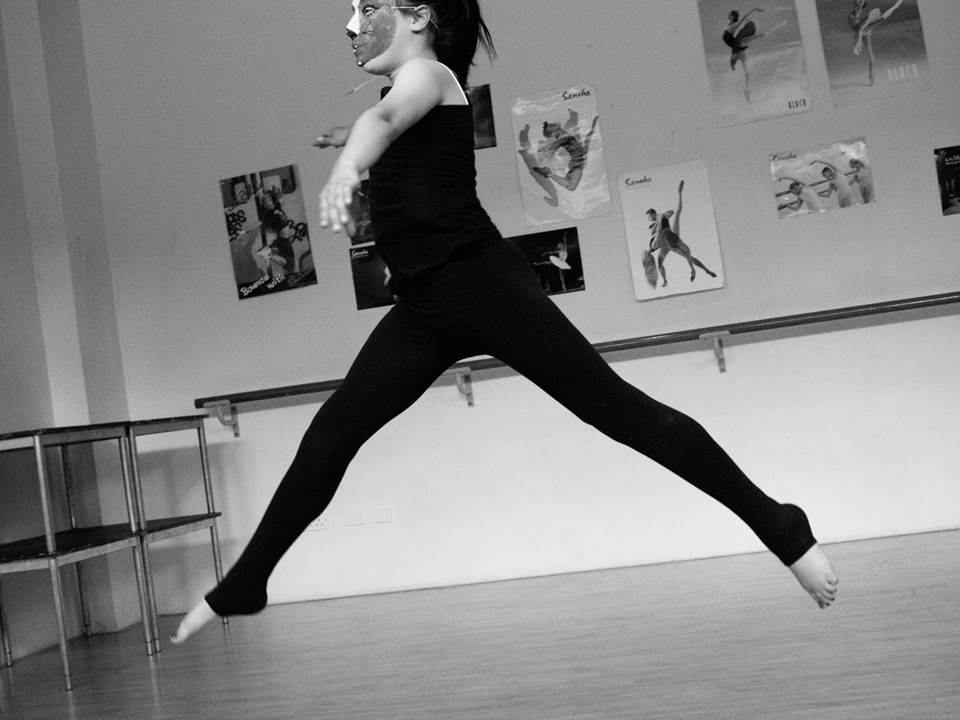
Year 7 Course Summary
(whole year, one hour per week)
Dance Around the World – An introduction to 5 genres of Dance; Ballet, Jazz, Bollywood, Rock ‘n’ Roll and Street Dance.
Choreographic Elements – Developing knowledge of choreographic devices and how to use them and evaluate for performance.
Stimulus Choreography – Focusing on stimuli and choreographic techniques to create a performance piece in response to the stimulus Propaganda from WWII.
Production Elements – The Lion King. Exploring careers within the arts, learn and perform choreography and develop knowledge of cultural dance through Afro-Caribbean influences.
Zumba – Developing choreographic ideas with physical and performance skills.
Year 8 Course Summary
(half a year shared with Drama, one hour per week)
Motif Development – Matthew Bourne’s ‘Nutcracker’
Characterisation – ‘Matilda the Musical’
Choreography Techniques and Performance Skills – Gangs
Year 9 Course Summary
(Third of a year alternating with Drama and Music, one hour per week)
Choreography Techniques and Performance Skills – Matthew Bourne’s ‘The Car Man’
Musical Theatre Project with cross curricular links to Drama and Music
Assessment:
Students are assessed on performance, choreography and analysis skills. This is ongoing through practical choreographic tasks, discussion, rehearsing for a performance, appraising and evaluating. There will be one deep mark written and practical assessment at the end of each unit. The practical assessment looks at the skills developed throughout the unit and the written test is assessing knowledge and understanding of key vocabulary with spellings, definitions and examples.
Extra-Curricular:
There are many opportunities to become involved with Dance beyond the classroom; KS3 Choreography Dance Club, Irish Dance Club and the HX Dance Academy provide chances for students to develop their skills and enjoyment at school, with opportunities to perform at various events throughout the school year. Real highlights of the year are trips to see many world class dance performances at local and West End Theatres.
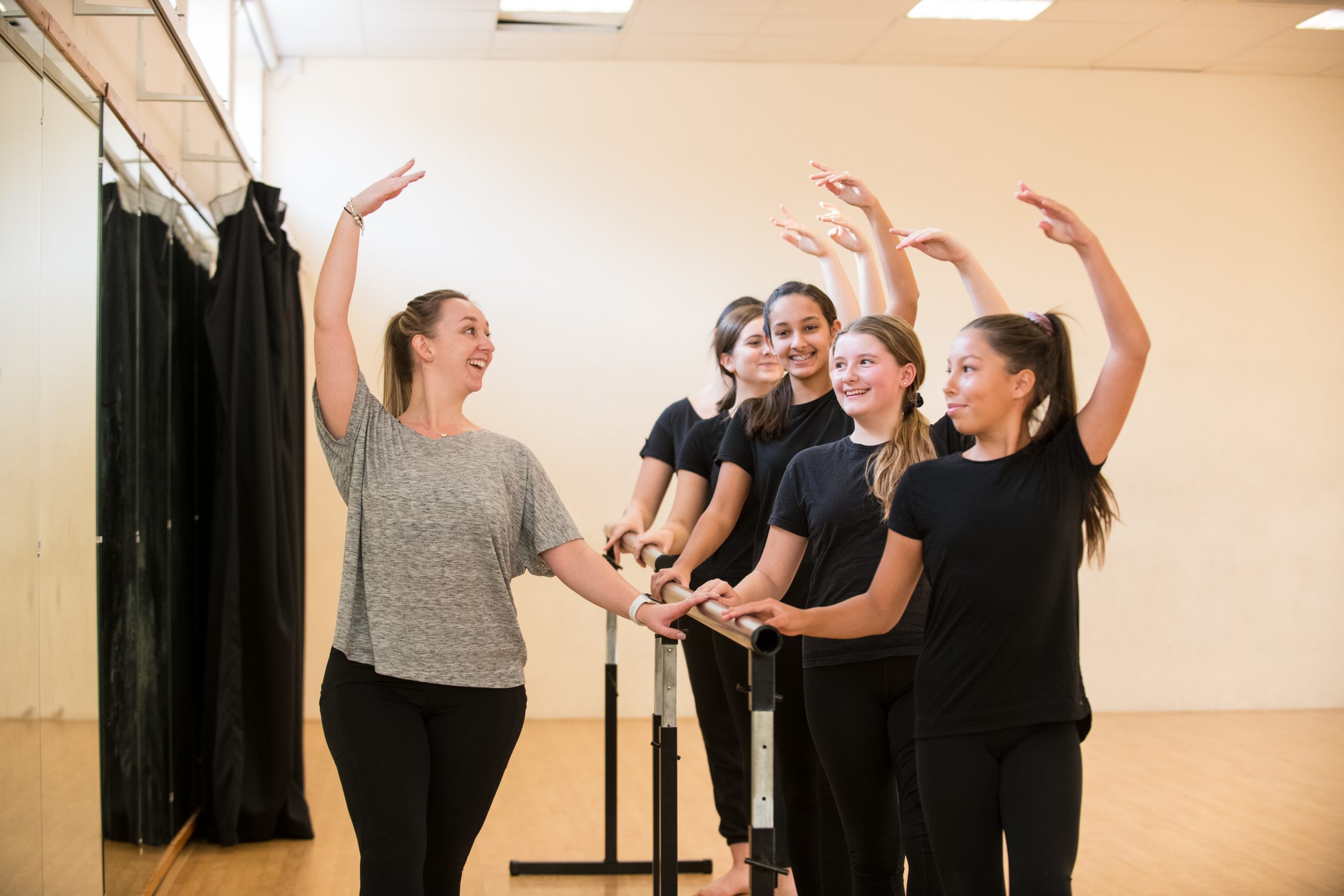
Key Stage 3 Drama
Drama is a skills based subject. Students will be introduced to a range of techniques that build towards creating detailed characters and effectively structured performances. This includes the study of a variety of skills: exploring the styles and types of drama, including scripted plays, physical theatre and creating atmosphere. Work is completed in a variety of group sizes from 1 – 30. Students are assessed on their Preparation, Performance and Evaluation.
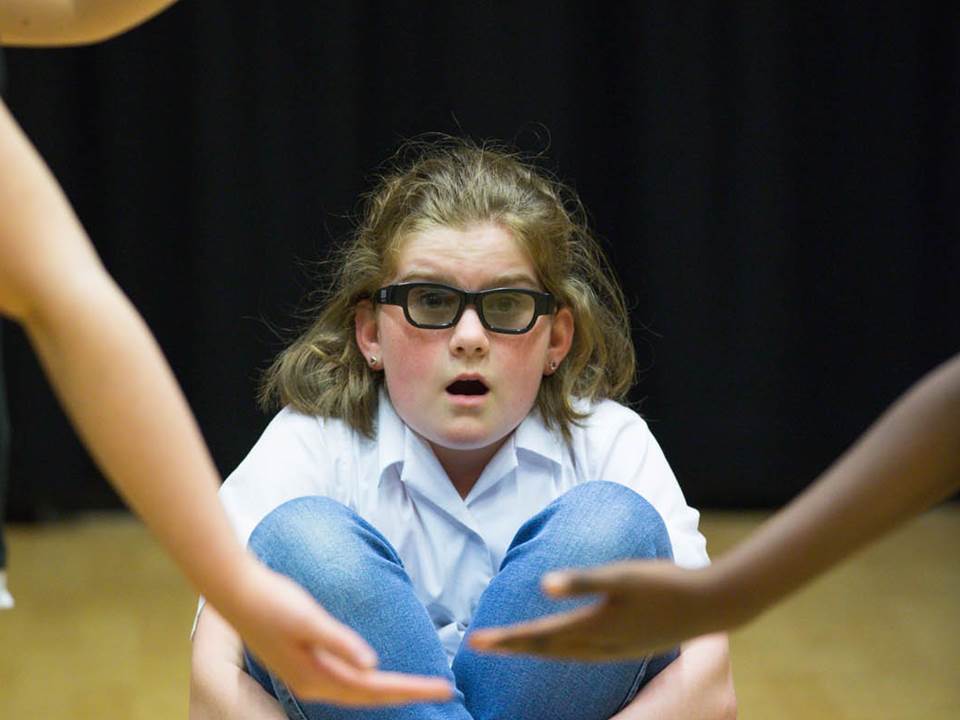
Year 7 Course Summary
(whole year, one hour per week)
Introduction to Drama
Mime and Movement
Harry Potter
The Terrible Fate of Humpty Dumpty (Text)
Improvisation
Year 8 Course Summary
(half a year shared with Dance, one hour per week)
Darkwood Manor
Red Hot Cinders (Text)
Peer Pressure
Year 9 Course Summary
(Third of a year alternating with Dance and Music, one hour per week)
Stimulus
Musical Theatre Project with cross curricular links to Dance and Music
Assessment:
Students are assessed on their Preparation, Performance and Evaluation which is on going through practical exploration, discussion, performance with both verbal and written evaluations. There will be one deep mark written and practical assessment at the end of each unit. The practical assessment looks at the skills developed throughout the unit and the written test is assessing knowledge and understanding of key vocabulary with definitions and examples.
Extra-Curricular:
There are many opportunities to become involved with Drama beyond the classroom, such as a student lead Drama Club and a wide variety of trips to West End and local theatres.
Key Stage 3 Music
Students are given one hour of music each week and are offered instrumental and voice tuition separately. Students who demonstrate particular aptitude, talent and commitment to music are encouraged to take part in the clubs and the many performance opportunities throughout the year.
Our aim is to provide a stimulating and challenging musical environment so that all pupils can be engaged and participate in a variety of topics to develop their musical skills, knowledge and understanding. This is done through solo / group performing, composing music, listening / appraising music, reviewing and evaluating their own and others’ work, reading music and rehearsal / performance techniques.
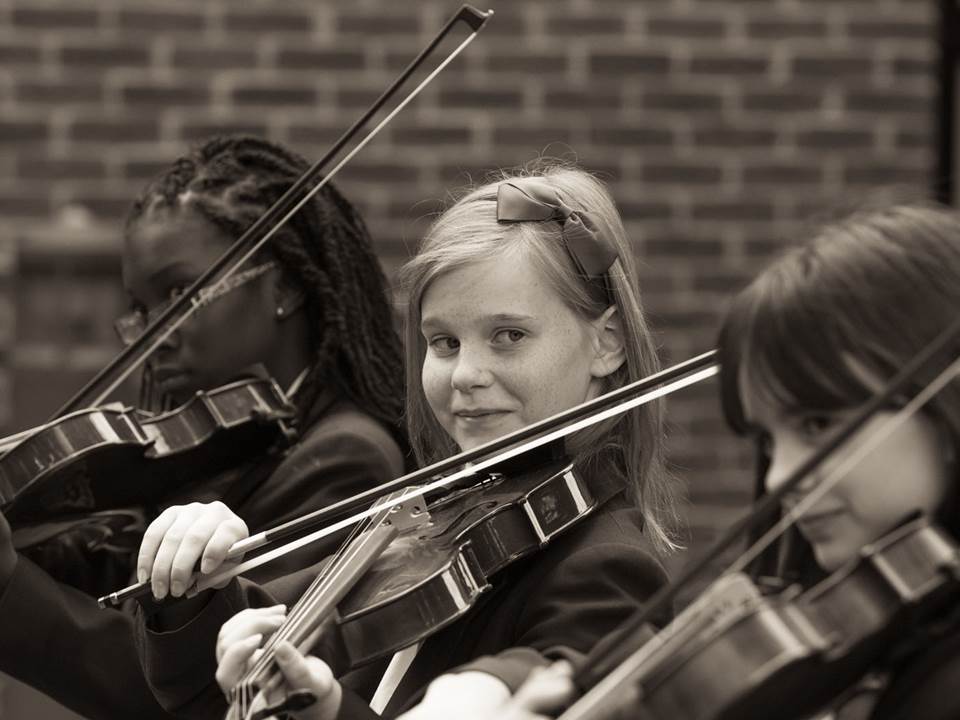
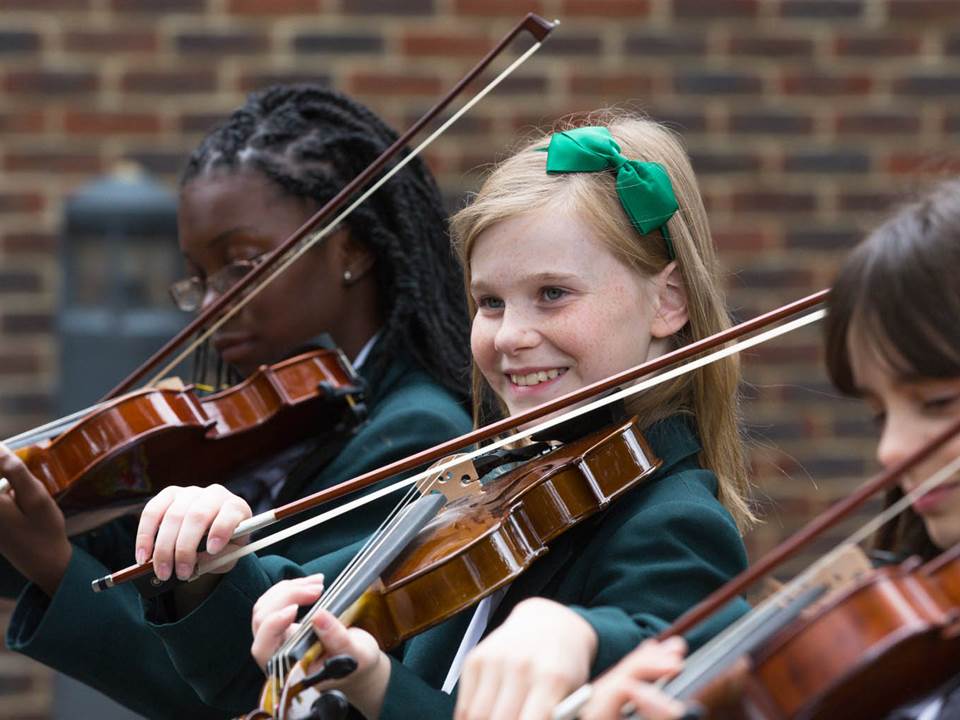
Year 7 Course Summary
(whole year, one hour per week)
The Voice – Singing
Elements of Music – Graphic Notation
Rhythm & Beat/Pulse – Body Percussion
World Music – Samba
Bach to the Future – Keyboards 1
Programme Music – Telling stories through music
Year 8 Course Summary
(whole year, one hour per week)
Musicals
Guitars
Bach to the Future – Keyboards 2
Orchestral Music – The Planets
Music in Advertising
Popular Music
Year 9 Course Summary
(Third of a year alternating with Dance and Drama, one hour per week)
Blues Music
Film Music
Musical Theatre Project with cross curricular links to Dance and Drama
Assessment:
Students are assessed on their Knowledge & Understanding, Performance, Composition and Listening/Evaluation which is on going through practical and written tasks with both verbal and written evaluations. There will be one formal deep mark written and practical assessment at the end of each unit. The practical assessment looks at the skills developed throughout the unit and the written test is assessing knowledge and understanding through listening and of key vocabulary with definitions and examples.
The music department is well resourced with keyboards, guitars and percussion instruments, a recording studio, 2 practice rooms and 1 drum room.
Extra-curricular:
There are many opportunities to become involved with Music beyond the classroom; Band, Orchestra, Choir, Gospel Choir, Assembly performances, a variety of ensembles and the opportunity to attend concerts and workshops throughout the year at the Rose Theatre and the South Bank Centre.
Concerts held throughout the year:
Students perform in major school events each year and importantly, students perform music for the Assemblies and Mass services throughout the year.
Autumn Term
Prize Giving Evening, Jack Petchey Awards Ceremony, Year 11 GCSE Concert, Carol Singing at Old People’s homes, Christmas Carol Service, Messiah at the Royal Albert Hall
Spring Term
Year 10 GCSE Concert, A musical Production (every 2 years), A Music Tour abroad (every 2 years)
Summer Term
Instrumental Concert, Summer Rock Pop Festival
Impact in KS4 – Across Performing Arts
All students have the opportunity to study Dance, Drama and Music at KS4 level. There are opportunities for extra-curricular activities in all three subjects, including a whole school musical production every two years which is performed in a professional theatre. We also provide theatre, concert and workshop experiences to support the learning for each subject.
The impact of Performing Arts is that all students continue their journey into further education with a range of transferable skills that have been enhanced through their practical and theoretical experiences the Performing Arts provide. Our aim is to offer them a rich, cultural and practical experience developing their confidence, key skills and knowledge across all the three Performing Arts subjects.
Students can study BTEC Dance, GCSE Drama and/or GCSE Music in KS4.
Key Stage 4 BTEC Tech Award Performing Arts – Dance
BTEC Performing Arts (Dance) gives students the opportunity to develop sector-specific knowledge and skills in a practical learning environment. Students follow the BTEC Level 1/Level 2 Tech Award in Performing Arts, Dance course set by the Pearson exam board.
The particular areas of focus are:
- development of key skills that prove your aptitude in Performing Arts such as reproducing repertoire or responding to stimuli
- process that underpins effective ways of working in the Performing Arts, such as development of ideas, rehearsal and performance
- attitudes that are considered most important in the Performing Arts, including personal management and communication
- knowledge that underpins effective use of skills, process and attitudes in the sector such as roles, responsibilities, performance disciplines and styles
The vocational nature of the BTEC Performing Arts Dance course means that you will develop practical performance skills by completing projects and assignments which are directly relevant to realistic workplace situations, activities and demands. The nature of this course requires a strong commitment to rehearsal in free time.
Assessment:
Component 1: Exploring the Performing Arts
Understanding the creative process and the roles and responsibilities of those involved. (Internally assessed)
Component 2: Developing Skills & Techniques in the Performing Arts
Performing as a dancer in a piece of set repertoire. (Internally assessed)
Component 3: Responding to a brief
Choreographing and performing your own work in response to a stimulus. (Externally assessed)

Key Stage 4 GCSE Drama
What you will study in GCSE Drama:
Drama GCSE Edexcel Examination Board – Inspiring creativity and confidence, a practical focus is at the heart, engaging set texts, clear and straightforward assessments and supports progression and develops transferable skills.
Drama is an exciting option at GCSE because it offers opportunities for you to begin to explore and make sense of the world around you. It’s your chance to share your views and opinions with others and experience life through someone else’s shoes.
Throughout the two years you will work with text, develop your improvisation skills and create your own piece of theatre. The course is structured into 3 Components covering both practical and written assessments.
Excellent attendance is vital for this subject due to the practical nature of lessons and amount of group work. A trip to the theatre is also an important and compulsory part of this course which involves answering examination questions for the final exam based upon knowledge of a live theatre experience.
Year 10 Course Content:
Programme of skills (study of devising skills, exploring drama practitioners, developing knowledge of drama strategies, exploration of chosen text and technical experiences)
Component 1
Devising – Practical performance and Portfolio of evidence
Year 11 Course Content:
Component 2
Component 3
Performance from Text – Practical Performance
Theatre Makers in Practice – Written Paper
Assessment:
Component 1
You will create and develop a devised piece from a stimulus for performance as either a performer or a designer (15 Marks). You will analyse and evaluate the devising process and performance through a portfolio of evidence (45 Marks).
(40% 60 Marks in total) Internally assessed and externally moderated.
Component 2
You will either perform in and/or design for two key extracts from a performance text. The Performance/design realisation covering both key extracts is worth 48 marks. If two separate performances are done covering two key extracts, then each performance/design realisation is worth 24 marks.
(20% 48 Marks in total) Externally assessed by visiting examiner.
Component 3
You will have a written examination: 1 hour 30 minutes
To complete the written paper you will need to practically explore and study one complete performance text (Section A Bringing Texts to Life – 45 Marks). This section consists of one question broken into six parts based on an unseen extract from the chosen performance text. You will also see a live theatre performance to answer evaluation questions in the written paper. This section consists of two questions requiring students to analyse and evaluate a live theatre performance they have seen, notes may be brought into this exam for Section B (Section B: Live Theatre Evaluation – 15 Marks).
(40% 60 marks in total) Externally Marked and Moderated.
Key Stage 4 GCSE Music
OCR’s GCSE (9–1) in Music provides an integrated approach to the three main elements – performing, composing and appraising. Students will be encouraged to be creative and to broaden their musical horizons and understanding with Areas of Study that inspire and challenge.
The course will enable students to explore performance and composition and offer opportunity to explore new instrumental skills. Through the various genres, styles and eras contained in the Areas of Study they will explore musical context, musical language, and performance and composition skills.
Assessment:
The assessment consists of three mandatory components. Two performance and composition components and a Listening and appraisal written exam.
Component 1
Prepare and record One Solo Performance (on any instrument and any genre) and One Solo Composition on chosen Instrument. This is assessed internally and externally moderated (30%).
Component 2
Prepare and record One Ensemble Performance (on any instrument and any genre) and One Board Set Composition. This is assessed internally and externally moderated (30%).
Component 3
A Listening exam (one hour and 30 minutes) assessing listening, appraising and notation skills on the content of the areas of study. This is assessed externally (40%) This tests pupils’ knowledge and understanding of music and their ability to listen to and appraise music through a written examination.
Areas of Study:
- The Concerto through time
- Rhythms of the world
- Film music
- Conventions of pop
Through investigation and in-depth study of a variety of music in the areas of study, students will further develop their knowledge and understanding. They will develop a technical vocabulary enabling them to discuss musical features with precision and depth.
Requirements:
There are no requirements that a pupil must have achieved a certain level / standard to be able to undertake this course. However the recommendations below will benefit the student and provide the opportunity to gain a higher mark.
- Be able to sing/ play an Instrument supported by regular lessons
- Have a strong Interest in performing and composing
- Have a good grasp of music theory (at least Grade 2 standard)
Summary:
The course hopes to encourage students to be inspired, moved and changed by following a broad, coherent and worthwhile course of study and to develop broader life-skills and attributes including critical and creative thinking, aesthetic sensitivity, emotional awareness, cultural understanding, self-discipline, self-confidence and self-motivation. The course will prepare students to make informed decisions about further learning opportunities and career choices.
Key Stage 5 A Level Music
Qualification:
Exam board:
A Level Music is taught between Richard Challoner School and The Holy Cross School.
A Level Music builds on the three essential components which are studied throughout the Secondary curriculum: Performing, Composing and Listening and Appraising. The course is designed to build on what students have learnt at GCSE and it is an excellent opportunity for students to put their musical skills to use in an academic and practical way.
Throughout the course, students study music from different eras including the vocal music of Bach and Mozart, instrumental music from Berlioz and Vivaldi, music for Film, popular music, including jazz, and music of the avant-garde 20th century. Students also study compositional techniques in set styles and will be expected to perform a range of repertoire in front of a live audience.
Course Content:
Unit 1: Performing 30%
Students perform one or more pieces in a concert lasting a minimum of 8 minutes.
Unit 2: Composing 30%
This is organized in two parts:
- A composition either to a brief or a free composition (40 marks)
- A technical study based on an arrangement of a melody or a chorale in the style of J S Bach (20 marks)
Both parts must last in total at least 6 minutes.
Unit 3: Appraising 40%
A two hour examination in two parts. This exam covers a wide range of music genres and styles, each with three set works.
Section A: Areas of study and dictation (50 marks)
- Three questions related to the set works (audio and skeleton score provided).
- One short melody/rhythm completion exercise.
Examination/Assessment:
Performance (30%)
Composition (30%)
Appraising exam (40%)
completed during the course and externally examined.
completed during the course and externally examined.
externally examined
Specific Entry Requirement:
GCSE Grade 6 or above in Music (if taken). Playing an instrument/singing to Grade 5 standard is essential. Students who believe they are at this standard but have not yet passed the exam must enquire instead. Students need to be able to read stave notation (treble and/or bass/clef) fluently. An interest in, and an open minded approach to, all styles of music, as well as an ability to compose and write about music (to GCSE standard) is useful.
